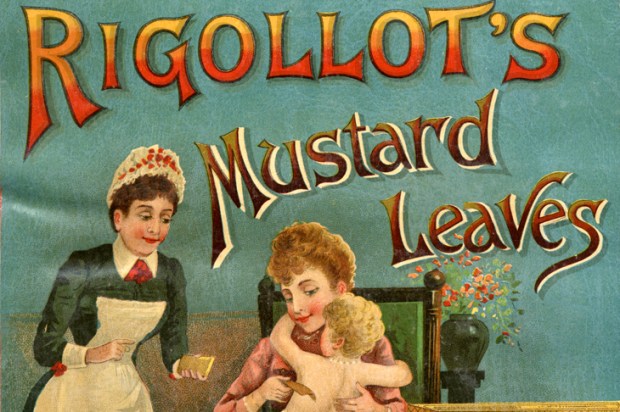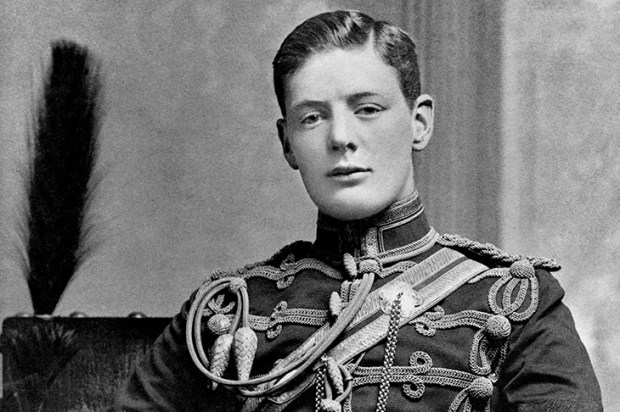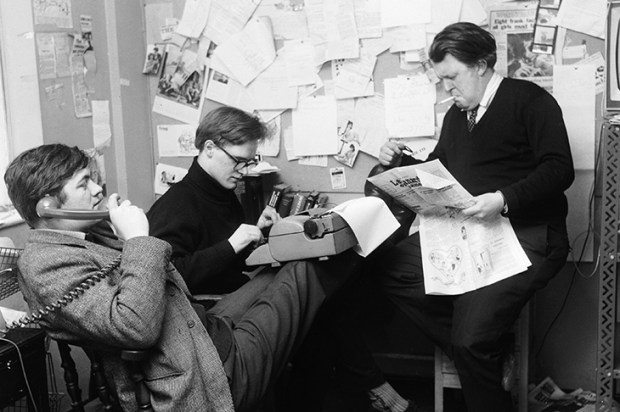Something extraordinary and largely unreported has just happened in a court in San Francisco. A federal judge has said that there is no Big Oil conspiracy to conceal the truth about climate change. In fact, Judge William Alsup — a Clinton appointment, so he can hardly be accused of right-wing bias — was really quite snarky with the plaintiffs who claimed there was such a conspiracy.
The case was brought by the cities of San Francisco and Oakland, which have taken it upon themselves to sue the five big western oil majors — Chevron, ExxonMobil, Conoco-Phillips, BP and Royal Dutch Shell — for allegedly engaging in a Big Tobacco-style cover-up to conceal the harm of their products. Apparently Big Oil knew about the dangers of man-made global warming but went on drilling anyway. So now the two Californian cities are trying to claim billions of dollars in damages to compensate them for all the walls and dykes and so on they’ll have to build to cope with rising sea levels.
Nice try. But so far Judge Alsup hasn’t been impressed. He said he had been expecting the plaintiffs to reveal ‘a conspiratorial document’ which proved that the defendants ‘knew good and well that global warming was right around the corner. And I said: “OK, that’s going to be a big thing. I want to see it.”’ Instead, he said disappointedly, all he got ‘was a slide show that somebody had gone to the IPCC [Intergovernmental Panel on Climate Change] and was reporting on what the IPCC had reported, and that was it. Nothing more.’ In other words, this secret knowledge that supposedly only these sinister oil companies possessed was entirely in the public domain.
This is a case that should never have come to trial. The fact that it did speaks volumes about the arrogance and complacency of the Climate Industrial Complex after years of promulgating its narrative all but unchallenged. As filmmaker Phelim McAleer, who has been attending the trial, put it: ‘Until now, environmentalists and friendly academics have found a receptive audience in journalists and politicians who don’t understand science and are happy to defer to experts.’
Quite. Consider, for example, the way the BBC has covered the climate scare story all these years. Sceptics such as Lord Lawson, on the rare occasions they are given air time, are treated like flat-earth pariahs. Anyone claiming to be a climate scientist, on the other hand — just so long as he or she is promoting the alarmist consensus — is treated with the kind of unquestioning reverence once accorded to cardinals, archbishops and high priests.
But just because these people claim to be experts doesn’t mean their every utterance should be treated as holy writ. This is what the ancients understood when they warned us of the rhetorical fallacy the Appeal to Authority. It’s what Gustave Le Bon meant in his 1895 classic The Crowd: A Study of the Popular Mind when he warned of the perils of ‘prestige’. And it’s also what the Royal Society was getting at in 1660 when it gave itself the motto ‘Nullius in Verba’ — take no man’s word for it. Michael Gove was right, despite all that flak he took: experts aren’t always all they’re cracked up to be.
Sometimes, they’re honest enough to admit this. In 2015, the editor of The Lancet, Richard Horton, confessed in an article that ‘much of the scientific literature, perhaps half, may simply be untrue’. And this wasn’t self-flagellating speculation. His view that ‘-science has taken a turn toward darkness’ was supported by copious evidence that many peer-reviewed studies are simply not worth the candle, some because they are merely shoddy, others because they are fraudulent.
Not that you’d ever guess this listening to, say, one of Radio 4’s numerous programmes about science. The impression given is not just that scientists are the most amazing, likeable, fun, noble and worthwhile people on earth, but also that they are so high-minded as to be quite incapable of the venality, corruption or bias associated with ordinary mortals.
Our culture’s fetishisation of expertise is a dangerous thing, as I tried to explain to the boys Brendan O’Neill and I taught at Radley the other week. Not altogether successfully. One boy in a politics class was absolutely insistent that Brexit was going to be a disaster because all the economists said it would be. So I gave him various historical examples — the 364 economists who wrote to the Times warning against Margaret Thatcher’s fiscal policy; the failure of the immediate aftermath of the Leave referendum vote to conform with all the Treasury’s doomsday predictions — to show they didn’t always get it right. But the boy wasn’t having it. Economists, merely by dint of being economists, knew better about the economy than non-economists, was his view. So great, indeed, was his faith that it quite trumped all real-world evidence.
Confronted with such obstinacy, I suddenly realised how easy it has been for ‘consensus’ scientists to promulgate their alarmist narrative all these years. We seem to inhabit a culture where critical thinking isn’t the norm (if indeed it ever was), where people find it more comforting to take complex issues such as climate change on trust than do a little digging and find out the truth for themselves.
This is what I so admire about the judge who has been presiding over this Californian court case. Judge Alsup is so determined not to be gulled by faux expertise that before each case, he makes it his business to become a mini-expert himself. While presiding in Uber vs Waymo, he asked for a tutorial on self-driving car technology. In Oracle vs Google, he taught himself Java programming. In this latest case, he was so well-briefed about the science of climate change that he was able to tick off one expert witness — the Oxford professor Myles Allen — for using a misleading illustration to represent atmospheric CO2.
No wonder the alarmist plaintiffs have been so blindsided by this court case. Rarely if ever before has their unearned authority been questioned by a trusted public figure who bothered to do his homework.
Got something to add? Join the discussion and comment below.
Get 10 issues for just $10
Subscribe to The Spectator Australia today for the next 10 magazine issues, plus full online access, for just $10.
You might disagree with half of it, but you’ll enjoy reading all of it. Try your first month for free, then just $2 a week for the remainder of your first year.














Comments
Don't miss out
Join the conversation with other Spectator Australia readers. Subscribe to leave a comment.
SUBSCRIBEAlready a subscriber? Log in